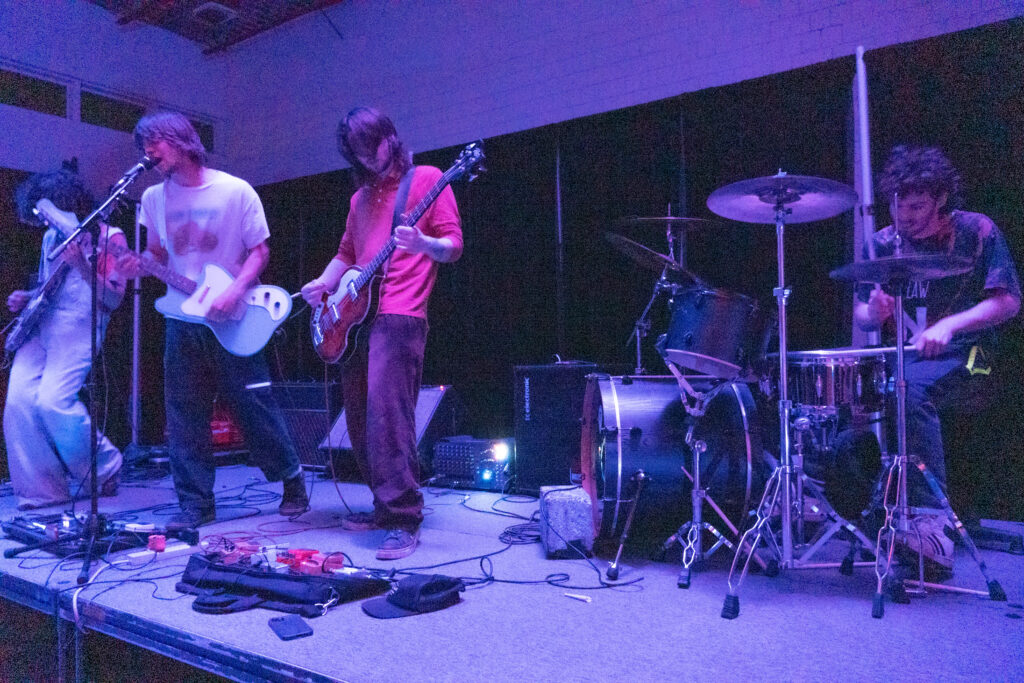Dr. Laurie Santos took the Colony Hall stage on December 6 as this year’s Phillips Speaker to share her expertise on how to be “happier.” Dr. Santos is a professor of psychology and cognitive science at Yale University whose course, Psychology and the Good Life, became the most popular course in the school’s history. The speech focused on ten researched-backed tips as Dr. Santos indulged students and faculty in the many ways they can alleviate the stress and anxiety they experience throughout the school year.
Dr. Santos, who specializes as a cognitive psychologist and technician, conducts research comparing behaviors between humans and animals. While serving as the head of Silliman College at Yale, she shifted from her research to finishing her course after witnessing firsthand the mental health crisis of the University’s students. She felt a responsibility to use her scientific expertise to devise mundane ways anyone, in particular, her often melancholy Yale students, can become happier individuals.
According to Nina Kulkarni ’23, who introduced Dr. Santos on Tuesday night, “[The psychology of happiness] is her main research. She mainly is a cogno-psychologist, so she is researching the human mind, what makes it unique, and comparing it to primate psychology and canine psychology.”
Dr. Santos abbreviated her university course into a one-hour lecture, creating a list of the 10 strongest tips for becoming happier in 2022. Her presentation began by addressing the multitude of factors causing unhappiness, including isolation from an unprecedented pandemic, an unstable economy, and the volatile development of digital media.
Through example studies, psychological correlations, and relatable examples, Dr. Santos demonstrated why each of her insights is so critical to achieving and maintaining one’s happiness. Shared data showed that 87% of students feel overwhelmed and 12% have seriously considered harming themselves, which demonstrated the dire need for a course centered around improving well-being.
From the importance of social interaction to savoring the present moment, Dr. Santos’s remarks were both digestible and impactful. She also stressed the importance of healthy habits to succeed in both professional and academic environments, such as preserving self-compassion and finding true fun.
For Spanish teacher Ms. Azucena Alvarez-Alonso, that fun is dancing. “It is infinite. You can always dance to a new song. You can always learn a new type of dance. You can always make a mistake, and you know it doesn’t matter because you have fun. There is no consequence.”
Dr. Santos’s tips were specifically designed so that anyone, anywhere can do it.
Elizabeth Burgstahler ’26 noted, “I took her class during Covid when I was really stressed, and hearing it again made me realize how much I’ve grown emotionally. We are certainly an overworked crowd that desperately needs these tips.”
Some students in the crowd shared the sentiment of having existing knowledge of the advice Dr. Santos provided. To that, she said, “although it may be common wisdom, it is not common practice.” Many students understand the importance of expressing gratitude for instnace, yet few perform it.
Another sentiment shared among the students was that Dr. Santos’s talk was too broad. Many would have liked for her to detail practical applications of her advice in environments such as Choate, where expectations and pressures inhibit students’ abilities to balance healthy habits with school work. Savannah Emory ’26 felt that the talk was “useful for someone who is already in a good mental state,” while Ruby Cameron ’23 shared that some of her peers who are neurodivergent or diagnosed with mental illness found that Dr. Santos’s tips are more challenging to practice.
Dr. Santos’s talk even has effects beyond that Tuesday evening. “We are looking into the idea of collaborating with Dr. Santos to revamp the wellness curriculum at Choate,” said Ms. Alexandra Copeland, the Associate Dean of Students for Health and Wellness. “Sometimes people attribute happiness to external factors, but I think a large part of it is internal and about the strategies you can do no matter how much time you have. Are you going to go on TikTok or write in your gratitude journal for five minutes?”
In busy and stressful environments like Choate, students, faculty, and staff alike should remember the importance of preserving their personal happiness. That’s what makes Dr. Santos’s talk so important. For Zooey Schamis ’26, she plans to take the time to write down things that she’s grateful for at the end of every day. When reflecting on the lecture, she says, “My biggest takeaway from the lecture is that happiness is what you make it. You cannot wait for happiness, you have to create it yourself.”

Photo by Ramsey Scott ’23/The Choate News



